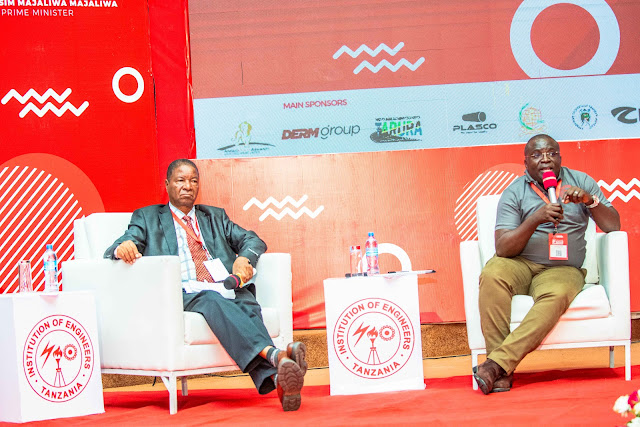Seif discussed the decline of maintenance units in public sector construction projects compared to their longevity in the private sector.
He suggested that a comprehensive plan should be established from the project's preparation stage through to completion and operation to ensure effective management.
Saying, "For instance, when a project is built and completed, there must be ongoing costs as the project operates in this manner, and maintenance costs must be incurred".
He went on to say, "At GGML, we hold the view that the project should not cease because of the lack of proper knowledge, which is why we offer consultancy services in two key areas. We recognise that the world has moved on from traditional practices, and our team of experts possess the skills to work with diverse technologies".
In addition, Seif, one of the 16 engineers from GGML who attended the conference, remarked that to effect these changes in the public sector, adequate human resources are necessary.
"But engineers must also take responsibility, and we should move away from the habit of working that is deeply ingrained in our culture. We require a department to measure and reprimand engineers who violate project criteria, instead of solely holding senior managers accountable, who are not directly involved," he stated.
Earlier at the conference, Innocent Bashungwa, the Minister of Works, instructed the Engineers Registration Board (ERB) to cooperate with the Institution of Engineers Tanzania (IET) to establish a viable system that enhances the capacity of engineers to adapt to technological changes.
Opening the conference on behalf of Prime Minister Kassim Majaliwa, Bashungwa stated that an engineer is a lifelong learner. Therefore, he directed ERB, supported by IET, to establish a dedicated programme that imparts skills to working engineers utilising current projects.
Bashungwa also encouraged the Engineers Registration Board (ERB) to re-examine the requirements for engineer registration by eliminating unnecessary barriers and opening up opportunities. "According to quick calculations, there should be over 12,000 proficient engineers, with one engineer per every 5,000 citizens. Nonetheless, I have discovered that there are fewer than 500 consulting engineers," he remarked.
Additionally, Bashungwa stated that the Government's objective is to establish a stable economy. To achieve this, there is a significant focus on enhancing the capacities, knowledge, professionalism, discipline, attention and efficiency of these experts.
Bashungwa also offered congratulations to GGML and presented them with a certificate acknowledging the company's contributions in organising and participating in the conference.






No comments:
Post a Comment